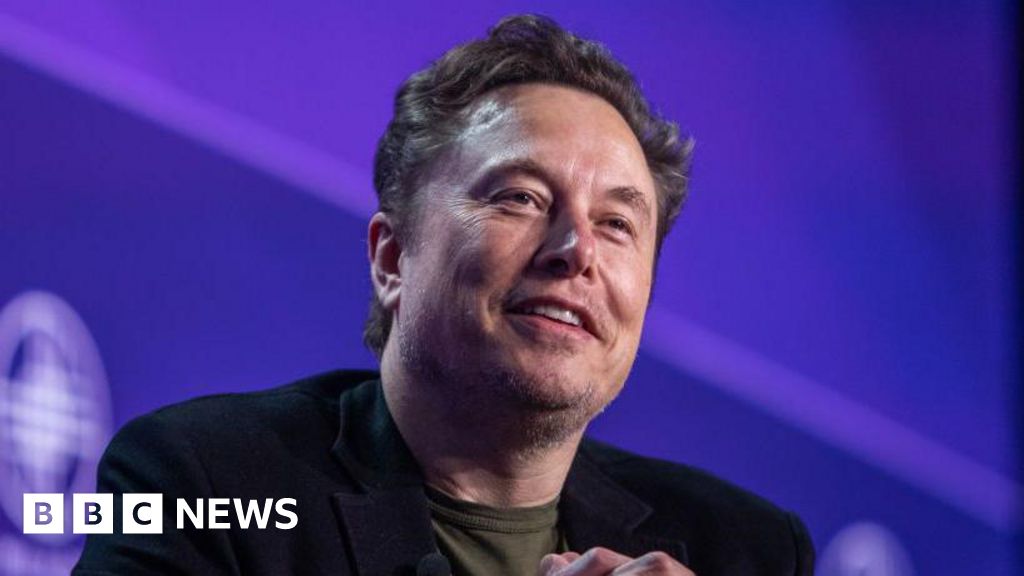Business
Macao is becoming more than a gambling destination. Casinos are winning big anyway

MACAO — If you blindfolded an American tourist and plopped them on the Cotai Strip in Macao, they might take one look at the Venetian hotel and the replica Eiffel Tower and assume they were in Las Vegas.
Like Las Vegas, Macao — a special administrative region of China — is transforming itself with fresh entertainment, waterparks, spas, fine dining and sports.
This week Las Vegas Sands is hosting two NBA games in Macao, a return for the basketball league after a six-year absence from China. The company’s president and chief operating officer, Patrick Dumont, owns the NBA’s Dallas Mavericks and was pivotal in engineering the league’s return.
“I think it’s great for Macao, because it highlights really how great an entertainment city Macao truly is,” Dumont told CNBC in an interview. He highlighted the tens of billions of dollars invested to create a world-class destination for hospitality.
“We’ve been operating here for 21 years, and we’ve invested $17 billion, so the amount of entertainment capacity here is really tremendous,” Dumont said. “For us, the NBA just highlights that.”

The NBA games — between the Brooklyn Nets and Phoenix Suns, on Friday and Sunday — will be played at the Venetian Arena in Macao. Fans packed the same arena last month for an immersive K-pop concert by the group Twice.
Big-name events draw the biggest spenders at the gaming tables, according to analysts at Citigroup, which last month raised its projection for 2025 gross gaming revenue in Macao to $33.3 billion. Those projections represent growth of 10% year over year, an acceleration in gaming revenue gains.
For comparison, the state of Nevada booked a record $15.6 billion in gaming revenue in 2024, according to the American Gaming Association, citing Nevada Gaming Control Board.
But the government of Macao is intent on diversifying its economy and moving beyond its reputation as the gambling capital of the world.
When the six primary concessionaires, the companies that run licensed casino resorts in Macao, applied in 2022 to have those concessions renewed, the government extracted from them a commitment to invest nearly $15 billion over 10 years, with about 90% dedicated to non-gaming amenities.
Wynn Resorts CEO Craig Billings said in an email to CNBC that the company’s concession-related investments are “focused on entertainment and, as we have seen in many markets including Macau, entertainment is a clear driver of visitation. And that visitation is from both gaming customers and non-gaming customers.”
View of Macao, Macao.
Contessa Brewer | CNBC
At Wynn Palace in Cotai, customers might snap selfies in front of an incredible collection of F1 race cars, ride a gondola over a Bellagio-esque fountain show, or dine at SW Steakhouse while catching a different theatrical show every 30 minutes. Wynn’s investment in food-court style dining belies the renowned cuisine represented from across China and around the world.
Gaming executives across multiple companies say the demographics of visitors have changed since borders reopened after the pandemic. Younger gamblers, high-rollers and their spouses or children are enjoying increasingly inventive and diverse amusements.
New amenities
MGM Macau’s Tria spa, the result of a $7 million investment, surprises guests with a room devoted to real snowfall. And its immersive experience pool puts the guest in the middle of a virtual ocean as a violent thunderstorm approaches, with massive rain shower heads overhead sending water cascading down.
MGM China President Kenneth Feng proudly showed off top-tier suites built to reward the best and most valuable players. He told CNBC his entire team is committed to offering modern uplifting design and superb service for an evolving Chinese visitor.
“These people are young and sophisticated, and many of them come to Macao so often,” Feng said. “We need to refresh our offerings so they are excited to come to Macao and happy to visit our properties.”
This week, families with children (and grandparents and “helpers” as the nannies are often called here) skipped through Melco’s Studio City, climbing atop Toy Story characters, racing toward the indoor/outdoor waterpark, and boarding the only figure-8 Ferris wheel in the world.
At Melco’s sister resort down the strip, City of Dreams, patrons young and old filled the theater for a destination show, “House of Dancing Water.”
View of Macao.
Contessa Brewer | CNBC
At every resort, the restaurants, shops, pools and clubs connect with corridors outside casino floors that are carefully cloistered behind screens to block the gaming tables and slot machines from view.
Getting back to gambling revenue
Visitation increased nearly 20% in the first half of 2025 to 19.2 million people, according to official government statistics. Golden Week alone, an eight-day holiday period ending October 8, was expected to bring in an estimated 1.2 million visitors.
And despite the strides in general entertainment, more visitors to Macao still means more gambling.
A JPMorgan analyst note published earlier this week said this year’s Golden Week was likely to be Macao’s best in five years, with the casinos projected to bring in $686 million in gaming revenue in just the first five days of the holiday.
CNBC was not allowed to photograph or record the casino floor, as its prohibited by law in Macao. The special administrative region takes great pains to avoid provoking the Chinese government, which staunchly opposes any promotion of gambling on the mainland.
View of Macao.
Contessa Brewer | CNBC
But it is gambling that fuels the profits and the tax revenue. Macao’s government collected $5.6 billion in gaming taxes in the first half of 2025, about 1% growth over 2024. The data from the first half of 2025 shows non-gaming spending per capita dropped by nearly 13%.
Las Vegas, too, has invested billions of dollars in entertainment, fine dining, spas, shopping and sports. Roughly two-thirds of revenue now comes from non-gaming sources, according to the Nevada Gaming Control Board.
Of course, that’s revenue; not profits. All those arenas, spas, pools and fancy theaters come with major construction and maintenance costs. And it takes a lot of high-priced concert tickets to pay off the investment.
Alan Woinski, publisher of The Gaming Industry Daily Report, blamed the slump in Las Vegas on declining tourist demand.
“It is pretty easy to understand that leisure is where the LV Strip is seeing business plummet. Could we get back the billions wasted on non-gaming amenities to attract the non-gambling leisure customer?” Woinski wrote on Wednesday.
Woinski says Macao is a different story: Here, the special events are driving the gambling.
“This month will be a good test because usually after a Golden Week, the rest of the month is weak,” Woinski told CNBC.
He said key metrics to watch are gross gaming revenue and whether the packed special events calendar for the rest of October helps deliver gaming revenue that finally returns to pre-pandemic levels.
One top casino executive, who asked to remain unnamed for fear of retribution, said there was “no way” Macao would ever be majority non-gaming revenue. The amenities, then, may just icing on the Baccarat cake.
— CNBC’s Jessica Golden contributed to this report.
Business
Goldman Sachs is about to report fourth-quarter earnings — here’s what the Street expects

Goldman Sachs CEO David Solomon speaks during an interview at the Economic Club of Washington in Washington, D.C., U.S., Oct. 30, 2025.
Kevin Lamarque | Reuters
Goldman Sachs is scheduled to report fourth-quarter earnings before the opening bell Thursday.
Here’s what Wall Street expects:
- Earnings: $11.67 per share, according to LSEG
- Revenue: $13.79 billion, according to LSEG
- Trading revenue: Fixed income of $2.93 billion, equities of $3.70 billion, per StreetAccount
- Investing banking fees: $2.58 billion, per StreetAccount
Goldman Sachs is set up to be a beneficiary of several trends in the fourth quarter.
Trading desks across Wall Street have benefited in the last year as President Donald Trump’s policies have roiled markets for bonds, currencies, commodities and stocks.
For instance, rival JPMorgan Chase topped expectations for fourth-quarter results on equities and fixed income trading revenue that exceeded the StreetAccount estimate by a combined $460 million.
Global investment banking revenue in the quarter was 12% higher than a year ago, according to Dealogic, which should provide a boost to Goldman’s advisory business.
The firm’s asset and wealth management division should also see gains as stock market levels remained buoyant in the quarter.
Finally, the bank said last week that its deal to offload its Apple Card business to JPMorgan would result in a 46-cents-per-share boost to quarterly results.
This story is developing. Please check back for updates.
Business
After Backlash, Elon Musk Grok To Stop Creating Undressed Images Of Real People On X

Last Updated:
X decision came after facing outrage over the misuse of Grok, where the AI Chatbot was found to be complying with user requests to digitally undress images of real people.

Elon Musk’s Grok can no longer undress images of real people on X. (Representative Image)
Amid the rising concerns over the sexualised AI deepfakes in countries including the UK and US, Elon Musk’s Grok artificial intelligence chatbot will no longer edit “images of real people in revealing clothing” on X, the company confirmed Wednesday evening.
The company’s decision came after facing global outrage over the misuse of Grok, where the AI Chatbot was found to be complying with user requests to digitally undress images of adults and, in some cases, children.
“We have implemented technological measures to prevent the Grok account from allowing the editing of images of real people in revealing clothing such as bikinis. This restriction applies to all users, including paid subscribers,” X wrote via its Safety team account.
Within the last week xAi, which owns both Grok and X, restricted image generation for Grok on X to paying X premium subscribers
CNN reported that it has been observed that in the last few days, Grok’s X account had modified how it responded in general to users’ image generation requests, even for those subscribed to X premium.
United States of America (USA)
January 15, 2026, 08:34 IST
Read More
Business
Elon Musk’s X to block Grok from undressing images of real people

Elon Musk’s AI model Grok will no longer be able to edit photos of real people to show them in revealing clothing, after widespread concern over sexualised AI deepfakes in countries including the UK and US.
“We have implemented technological measures to prevent the Grok account from allowing the editing of images of real people in revealing clothing such as bikinis.
“This restriction applies to all users, including paid subscribers,” reads an announcement on X, which operates the Grok AI tool.
The change was announced hours after California’s top prosecutor said the state was probing the spread of sexualised AI deepfakes, including of children, generated by the AI model.
The update expands measures that stop all users, including paid subscribers, editing images of real people in revealing outfits.
X, formerly known as Twitter, also reiterated in a statement on Wednesday that only paid users will be able to edit images using Grok on its platform.
This will add an extra layer of protection by helping to ensure that those who try and abuse Grok to violate the law or X’s policies are held accountable, it said.
Users who try to generate images of real people in bikinis, underwear and similar clothing using Grok will be stopped from doing so according to the laws of their jurisdiction, X’s statement said.
In a statement on Wednesday, California Attorney General Rob Bonta said: “This material, which depicts women and children in nude and sexually explicit situations, has been used to harass people across the internet.”
Malaysia and Indonesia have blocked access to the chatbot over the images and UK Prime Minister Sir Keir Starmer warned X could lose the “right to self regulate” amid outrage over the AI images.
Britain’s media regulator, Ofcom, said on Monday that it would investigate whether X had failed to comply with UK law over the sexual images.
-

 Entertainment1 week ago
Entertainment1 week agoDoes new US food pyramid put too much steak on your plate?
-

 Politics1 week ago
Politics1 week agoUK says provided assistance in US-led tanker seizure
-

 Entertainment1 week ago
Entertainment1 week agoWhy did Nick Reiner’s lawyer Alan Jackson withdraw from case?
-

 Business1 week ago
Business1 week agoTrump moves to ban home purchases by institutional investors
-

 Sports1 week ago
Sports1 week agoPGA of America CEO steps down after one year to take care of mother and mother-in-law
-

 Sports4 days ago
Sports4 days agoClock is ticking for Frank at Spurs, with dwindling evidence he deserves extra time
-

 Business1 week ago
Business1 week agoBulls dominate as KSE-100 breaks past 186,000 mark – SUCH TV
-

 Business1 week ago
Business1 week agoGold prices declined in the local market – SUCH TV











